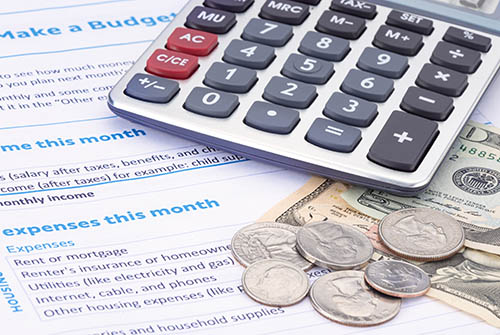Understanding Real Estate Contracts and What You Can Expect to Find
 There are a lot of things that go into the successful sale of your home, but many people are unfamiliar with the intricacies of the contract. Whether you consult with your real estate agent or plan on diving in on your own, it’s important to be clear on the terms. If you’re wondering what you can expect when it comes to the contract, here are some pointers on what to watch out for.
There are a lot of things that go into the successful sale of your home, but many people are unfamiliar with the intricacies of the contract. Whether you consult with your real estate agent or plan on diving in on your own, it’s important to be clear on the terms. If you’re wondering what you can expect when it comes to the contract, here are some pointers on what to watch out for.
Real Estate Jargon
A real estate contract would not be complete without the professional terminology, so you’ll see words like amortization, price-to-income ratio and title that may impact the meaning of your contract. Instead of going it blind, search the Internet for terms or consult with your real estate agent to provide a clear explanation.
Specifics On The Sale
Information regarding the specifics of your property will be present in the contract, and it’s important to check this information before signing on the dotted line. While the address and location of your home are important, it’s also critical to verify the purchase price that has been decided upon, the closing date on the property and any other items that have been negotiated and agreed upon.
Be Aware Of Withdrawal Terms
It can be easy to be taken away by excitement once you’ve received the perfect offer on your home, but it’s important not to lose sight of everything that’s required before the sale has been finalized. One of the most important parts of the contract is the withdrawal terms that are laid out, so be certain you’re aware of what your rights are if you or the homebuyer decides to withdraw from the process.
Watch For Seller’s Responsibilities
If you, as a seller, do not remain committed to the terms of the contract this can be a deal breaker, so ensure that you’ve familiarized yourself with exactly what’s required of you. This may include everything from the maintenance on the property to offer negotiations, so it’s important to comply with these terms.
Dealing with a real estate contract can be confusing for the layman, so it’s worth your while to have a trusted real estate agent around who will be able to explain it. From withdrawal terms to seller responsibilities, there are plenty of things you should be aware of before sealing the deal.
 An open house is one of the best opportunities a potential homeowner will have to take stock of a home and determine if it will work for them. However, it can also be a good opportunity to discover some glaring red flags that might make it a less worthwhile investment. If you’re currently perusing the open houses in your neighborhood, here’s some things you should make sure to watch out for.
An open house is one of the best opportunities a potential homeowner will have to take stock of a home and determine if it will work for them. However, it can also be a good opportunity to discover some glaring red flags that might make it a less worthwhile investment. If you’re currently perusing the open houses in your neighborhood, here’s some things you should make sure to watch out for. Buying a home is a significant expense. It doesn’t matter whether you’re a first-time buyer or have experience. Unless you have a large pile of cash, you’ll need to ensure your finances are in order before closing. In this post we’ll explore four financial items you’ll want to check off before buying a new home.
Buying a home is a significant expense. It doesn’t matter whether you’re a first-time buyer or have experience. Unless you have a large pile of cash, you’ll need to ensure your finances are in order before closing. In this post we’ll explore four financial items you’ll want to check off before buying a new home.